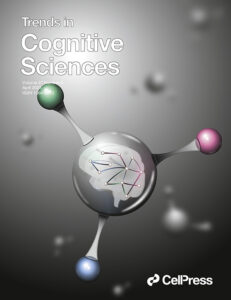
Hello!
We hope that you enjoyed our inaugural newsletter and wish to thank those that attended our first MCOS in January with Arianna Sala, PhD. We think it was a rousing success and appreciate the participation of everyone who was able to join! We welcome any feedback you may have! Please find the replay here and slides here. We hope to see you at our next talk for further discussion, please find the details below!
1. We are pleased to inform you that the second Molecular Connectivity Working Group Symposium is set for May 3-4 in Munich, Germany
Focusing on brain connectivity, the event features experts in molecular imaging, MRI and EEG. A dedicated session on standardized nomenclature will be exclusively for MCWG members and invited experts.
The symposium will take place in a hybrid format, the preliminary programme is attached: Preliminary Program MCWG Symposium, May 3-4, Munich, Germany.
Website and Registration (opening soon) can be found here. Please share with your colleagues, trainees, collaborators and on social media.
We look forward to seeing you in Munich!
2. We are also very pleased to announce the second talk in our Molecular Connectivity Online Series, ‘MCOS’, featuring Christian Habeck, PhD!
Date: February 23rd, 2024
Time: 15:00 CET, 9:00 EST, 22:00 CST
Title: Basic introduction to multivariate neuroimaging analysis – for nerds and novices
Please join us for this 30 minute presentation to be followed by discussion (~25 minutes).
Please register here.
Abstract: I will (1) go through some of the basics of PCA with toy simulations, (2) discuss some of the recent criticisms of PCA, and (3) show examples in fMRI data to demonstrate the power of multivariate compared to univariate analysis. I hope to convince the audience that an intelligent use of PCA is the best go-to initial pass at complex data, and also provides a good benchmark for more complicated and deeper learning architectures.
Some of the material in this presentation in late 2022: Multivariate analysis (PCA-SSM) of brain data: basic introduction and applications

I was originally trained as a Particle Physicist, but followed the great migration from Physics to the lifesciences after my PhD. (Date undisclosed!). After a brief stint of biophysical computational modeling at the Neurosciences Institute in San Diego, I came to brain imaging analytics with PET and fMRI at Columbia University where I have been ever since. I have conducted, developed, and popularized multivariate analysis frameworks and non-parametric statistics, relying on the trusty workhorse of PCA. My hope is that every practitioner -from seasoned analyst to novice- will get something out of my talk.
The MCOS will include seminars and tutorials to promote resource sharing and methodological rigor in the field. We will hold MCOS every third Friday of the month, subject to change due to speaker availability.
The next MCOS Seminar will be held on March 15th at 15:00 CET, 9:00am EST featuring Vince Calhoun. The title of his talk will be: “NeuroMark PET: Towards a fully automated PET ICA pipeline”. Stay tuned for details in next month’s newsletter!
Members of the MCWG are co-organizing the 12th European Conference on Clinical Neuroimaging in March in Leipzig, featuring invited talks on molecular imaging, total-body PET, imaging in psychiatry and ATN concept in Alzheimer’s disease. Register now to benefit from the Early-Bird-Rates (before Feb 22nd).
Please send us information about events related to brain connectivity and molecular connectivity that you wish to share with the community for consideration no later than the final day of each month using this form.
Please submit any news, including publications you would like highlighted or job listings related to brain connectivity and molecular connectivity that you would like to share with the community for consideration no later than the final day of each month using this form.
Each month, we will feature a member of the MCWG and have a brief Q&A!
This month please enjoy our highlight of Dr. Silvia Paola Caminiti, member of the MCWG Steering Committee.

Dr. Silvia Paola Caminiti is an Assistant Professor at the Department of Brain and Behavioral Sciences at the University of Pavia in Italy. With a background in neuroimaging and neuroscience, Dr. Caminiti is dedicated to advancing our understanding of the intricacies of the brain and its functioning. Dr. Caminiti’s primary research focus revolves around aging and neurodegenerative diseases. The goal of her research program is to examine selective neuronal vulnerability in Alzheimer’s (AD) and Parkinson’s disease (PD) using multimodal neuroimaging including positron emission tomography (PET) and magnetic resonance imaging (MRI). One of her projects aims to evaluate the dynamical connectivity changes affecting the course of AD. By employing advanced technical and computational methods, she passionately seeks to uncover the vulnerabilities of the brain, providing valuable insights into diverse clinical phenotypes.
Dr. Caminiti has graciously responded to our feature questionnaire below!
What is your role in the Molecular Connectivity Working Group and what have you been contributing to/working on with the Molecular Connectivity Working Group?
I’m currently a member of the steering committee for the Molecular Connectivity Working Group, currently serving as the Chair of the Symposium Council. My primary responsibility involves organizing – with the invaluable support of the other Council members – the second edition of the MCWG Symposium titled “Molecular Imaging of Brain Connectivity: Towards Standardized Nomenclature.” This event will be held in Munich on the 3rd and 4th of May 2024. I trust that all of you will thoroughly enjoy the event!
In what ways do you imagine the impact of molecular connectivity will have in advancing our understanding of brain function?
Brain connectivity can be estimated in different ways using PET data. Molecular connectivity provides insights into the intricate molecular mechanisms underlying neuronal processes. For example, molecular imaging allows us to specifically study chemical synapses, which are the predominant mode of signaling in the human brain. The study of brain communication at the molecular level is therefore a necessary step in advancing our understanding of brain connectomics. Moreover, the development of new tracers targeting specific biological substrates could provide further insights into the mechanisms underlying brain connectivity.
What do you think are the most important challenges in current brain connectivity research / what unsolved/underappreciated issues should the community tackle to advance the field?
In my opinion, the most challenging task in the field of brain connectivity research – in the era where a large amount of multi-modal data have been collected – rigorous pipelines of data analyses are essential. It’s crucial to have consistency in data collection and analysis methodologies to compare results across studies and to integrate across-modality evidence. The reliability and reproducibility of findings in the field can be enhanced by creating standardized protocols based on experimental design, imaging techniques, and data processing.
What scientist or scientific achievement do you most admire?
This is a difficult question because I have different favourite scientists and achievements. However, as I am Italian and a woman, Rita Levi Montalcini was by sure my greatest inspiration. I admire her tenacity and dedication to scientific research. The resilience she showed in the face of difficulties, coupled with her enthusiasm to discover new things with curiosity, without being influenced by preconceived ideas, is, in my opinion, a fundamental quality for a good scientist.

The MCWG is made up of four international and multidisciplinary councils dedicated to promoting molecular connectivity research via dissemination of methods, results, collaboration, and resource sharing (e.g. datasets, tools) within the scientific community. We encourage the neuroscientific community to take an integrative perspective in study of the brain connectome, where various methods including MRI-based techniques, electrophysiological tools, and molecular imaging advance our understanding of the brain. Please find fundamental questions outlined here: “Brain connectomics: time for a molecular imaging perspective?”
Our website can be found here. We also invite you to join the MCWG!